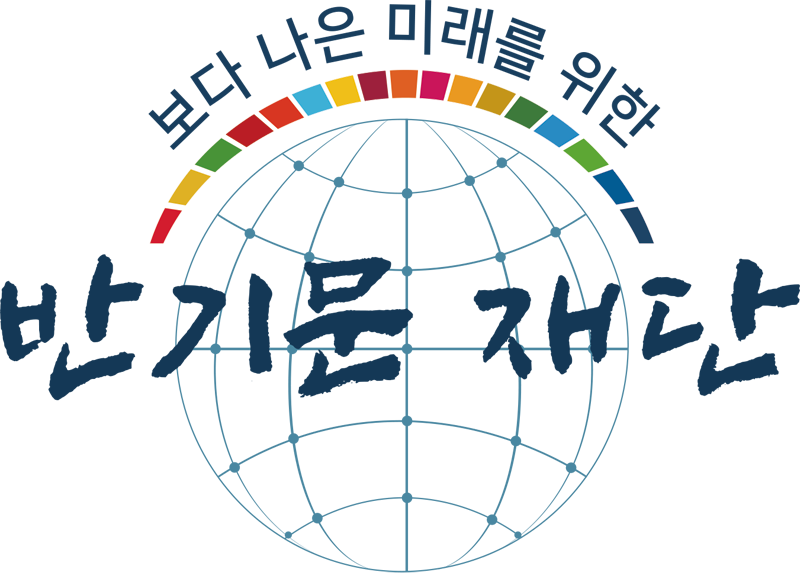[2025-09-11] The Korea University Institute of Unification and Convergence and the Ban Ki-moon Foundation discussed diplomatic and security solutions
The U.S. detention case to discuss the second diplomatic and security strategy of the Trump administration to hold a symposium at Korea University. “Isn’t this a reasonable… “It’s sad and angry” “We need to preemptively respond to the international order by strengthening self-reliance.”

Former U.N. Secretary-General Ban Ki-moon and Korea University President Kim Dong-won are making a national memorial service at the 3rd joint symposium on the theme of “Trump 2.0 Era: The Great Transformation of Geopolitics and Geopolitics Security and Global Order” at the Samsung International Teleconference Room for Centennial Anniversary of Korea University in Seongbuk-gu, Seoul on the 11th. [Yonhap News]
The Korea University Institute of Unification and Convergence and the Ban Ki-moon Foundation discussed diplomatic and security solutions, including Korea-U.S. relations and Korea-China relations, in the background of the era of great transformation with the launch of the second Trump administration. At the symposium, former UN Secretary-General Ban Ki-moon emphasized the strategic evolution of the South Korea-U.S. alliance and expressed strong regret that the recent detention of Korean workers in Georgia was not a rational treatment for allies.
On the 9th, the Korea University Institute for Unification and Convergence and the Ban Ki-moon Foundation for a Better Future held the third joint symposium under the theme of ‘The Trump 2.0 Era: The Great Transformation of Geopolitics and Geopolitics Security and Global Order’. The forum, which was held to explore the direction of South Korea’s diplomatic strategy in the diplomatic environment of the second Trump administration, was attended by key diplomatic figures, including former President Ban, Kim Hyun-wook, head of the Sejong Institute, Kim Sook, former U.N. ambassador, and Kim Sung-han, former head of the National Security Office.

Former UN Secretary-General Ban Ki-moon is giving a keynote speech at the 3rd Joint Symposium on the theme of “The Trump 2.0 Era: The Great Transformation of Geopolitics and Geopolitics Security and Global Order” at the Samsung International Teleconference Room for the Centennial of Korea University in Seongbuk-gu, Seoul on the 11th. [Yonhap News]
In his keynote speech, former President Ban emphasized, “We need to work based on firm principles and standards in the Korea-U.S. alliance,” adding, “We need a strategy to make sure that what we give and receive is what we give.” In particular, he warned that discussions on reducing U.S. troops in South Korea should not be on the agenda because it is likely to give North Korea an excuse for misjudgment.
He also expressed his position on the detention of a Korean worker in Georgia, USA, on the 4th. Former President Ban said, “The measure taken without prior notice is not a reasonable treatment for allies, and I feel sorry and angry,” adding, “It is not something to worry about the Korea-U.S. alliance, but the authorities should take preemptive measures to prevent a recurrence.”
It also raised concerns about triangular cooperation between North Korea, China, and Russia. On the 3rd, the leaders of North Korea, China and Russia gathered together for the first time in 66 years since 1959, saying, “We need to implement effective foreign policy while closely watching the possibility of them moving toward close military solidarity.” At the same time, referring to Kim Jong-un’s first appearance on the multilateral diplomacy stage, he said, “Kim must realize that nuclear weapons alone cannot improve people’s lives by participating directly in the international community.”
He stressed that in order to proactively respond to the changing international order, we should strive to strengthen our self-power and continuously reorganize it to suit the era of artificial intelligence (AI). Former President Ban said, “We need to further develop the national confidence that has achieved not only tangible power but also economic advanced countries, trading powers, and cultural powers.”
In the first session following the keynote speech, discussions continued focusing on the reorganization of international order and Korea’s response strategy. “The current international system is facing a major turning point, including the weakening of the public goods of the United States, the weakening of the democratic alliance, the advent of the nuclear age, and the weakening of the liberal international order (LIO),” said Kim Hyun-wook, head of the Sejong Institute.
“Unlike the European Union, Japan, and China, Korea has not yet come up with a multilateral policy,” said Lee Shin-hwa, head of Korea University’s Institute for Unification and Convergence, stressing the need to take the lead in establishing institutional solidarity to ease dependence on the U.S. “Without the stability of domestic politics and bipartisan agreement for this, foreign policy consistency and the international community will not be trusted,” he added.
In the second session, discussions continued on the direction of economic security and global economic order in a new international environment in which military security and economic and technological security converge. “China is rapidly transforming its industrial structure in the wake of the AI revolution,” said Choi Byung-il, head of the Pacific Trade Strategy Innovation Hub at the law firm. “The overall economy is in a slump, but high-tech manufacturing industries such as electric vehicles are on the rise, so they have a complete self-defense system.” However, he stressed that the key to the U.S.-China economic dispute is that the export market is being blocked.
Yeon Won-ho, head of Hyundai Motor’s global economic security office, analyzed that the U.S. tariff policy could be a long-term strategic change. “Even if the Democratic Party enters the 2028 presidential election, the U.S. is unlikely to give up tariffs easily,” Director Yeon said. “This is not just disorderly protectionism, but a move to create a new order with some principles and goals.”
ee.sumin2@mk.co.kr



